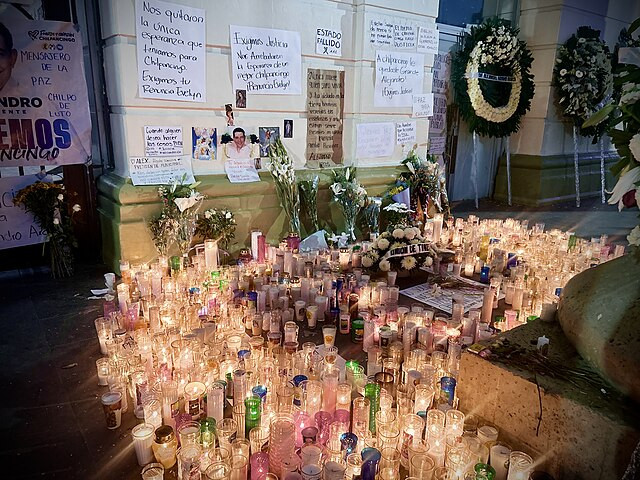Authorities in Guerrero, Mexico, announced the arrest of Germán Reyes, a former prosecutor and local police official, in connection with the brutal killing and decapitation of Chilpancingo's newly elected mayor, Alejandro Arcos, on October 6. Reyes, who previously held the position of special prosecutor for Guerrero state and was a retired military captain, faces homicide charges. The arrest is a startling development in a region plagued by violence and criminal influence, where officials had initially attributed Arcos' murder to a local drug and extortion gang.
Reyes' arrest raises serious concerns about potential collusion between local officials and criminal groups. His previous roles in law enforcement and the military, which were thought to insulate him from corruption, make the allegations even more alarming. If convicted, it would signal a severe blow to policies that prioritize hiring retired military personnel for police positions, on the assumption they are less susceptible to corruption.
State detectives enlisted federal forces, including soldiers and the National Guard, to apprehend Reyes. This reliance on federal support indicates a lack of trust in local law enforcement, reflecting the complex and often dangerous ties between officials and gangs in Guerrero.
The arrest comes amid escalating violence in Chilpancingo, where rival gangs-the Ardillos and the Tlacos-continue to battle for control. This conflict has left a grim trail of mutilated bodies, as criminal groups deploy brutality to instill fear. Mexico's top federal security official, Omar García Harfuch, confirmed that Arcos' death appears linked to the same gang responsible for a recent massacre of 11 market vendors, including four minors. Their bodies were found in the bed of a pickup truck, just days before Reyes' arrest.
The Ardillos gang, which allegedly holds sway over substantial parts of Guerrero, has long been at odds with the Tlacos. According to a local human rights activist, the Ardillos not only engage in drug trafficking but have also infiltrated state politics, with connections to congressmen and other officials. "They control large parts of the state," the activist noted, speaking anonymously due to fears of reprisal.
Chilpancingo, a city of roughly 300,000 residents, exemplifies the severe challenges facing Guerrero. In 2023, one gang demonstrated its power by orchestrating a mass protest, commandeering a government armored vehicle, and taking police officers hostage to secure the release of detained associates. Such incidents underscore the extent to which criminal organizations dominate daily life and exert influence over government institutions.
Violence in Guerrero prompted Roman Catholic bishops earlier this year to broker a truce between rival cartels in another region. The initiative, backed by former president Andrés Manuel López Obrador, who left office on September 30, drew mixed reactions. López Obrador, known for his reluctance to directly confront cartels, supported religious leaders' involvement in promoting peace. "Priests and pastors and members of all the churches have participated, helped in pacifying the country. I think it is very good," he said at the time.
Arcos' gruesome killing, in which his severed head was displayed atop a vehicle, is a stark reminder of the region's entrenched violence. While federal and state officials have refrained from naming specific gangs responsible, the Ardillos' longstanding feud with the Tlacos has been cited as a key factor in the bloodshed.






